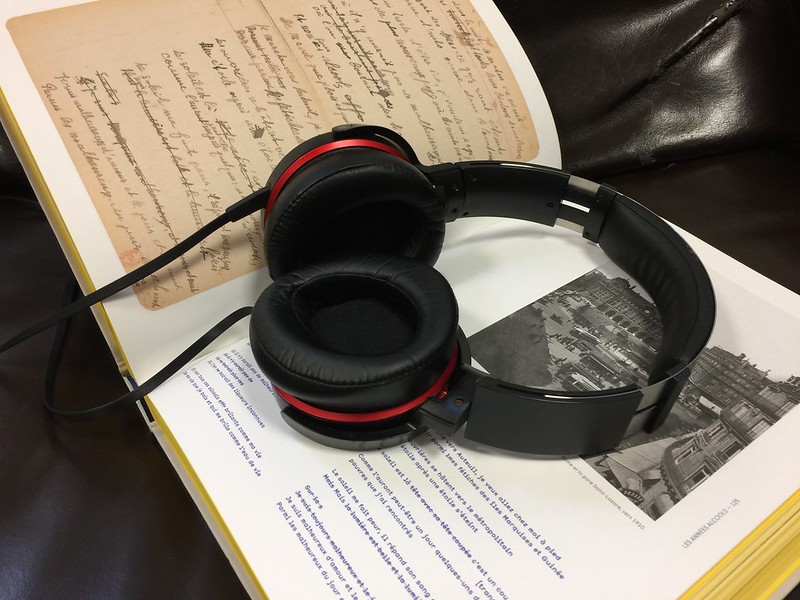Speaking Books: A Dynamic Educational Antidote
 In 2004, serial entrepreneur and mental health care practitioner Zane Maureen Wilson was scrolling through the headlines of the infamous international business newspaper, “Wall Street Journal.” As she was browsing, a unique story caught her attention. The story was about a talking book designed to provide health care education in Afghanistan. However, as she sifted deeper into the details, she discovered that each of these books cost $62.50, which was unaffordable for many Afghan families. Inspired by the article, Wilson launched the company Speaking Books in 2005. The company provides free audiobooks on health care to illiterate and struggling communities across the globe.
In 2004, serial entrepreneur and mental health care practitioner Zane Maureen Wilson was scrolling through the headlines of the infamous international business newspaper, “Wall Street Journal.” As she was browsing, a unique story caught her attention. The story was about a talking book designed to provide health care education in Afghanistan. However, as she sifted deeper into the details, she discovered that each of these books cost $62.50, which was unaffordable for many Afghan families. Inspired by the article, Wilson launched the company Speaking Books in 2005. The company provides free audiobooks on health care to illiterate and struggling communities across the globe.
Wilson’s Eventful Journey
In 1969, Wilson embarked on her entrepreneurial odyssey when she moved to South Africa from her hometown in Lincolnshire, England. First, she introduced Top Girl, the first-ever female executive placement agency in South Africa. This business quickly skyrocketed and in 1975, she sold it. In 1994, she launched the South African Depression and Anxiety Group (SADAG), which became Africa’s most recognized mental health initiative. However, as a hectic entrepreneur, Wilson encountered many panic attacks, which expeditiously escalated into an undiagnosed acute panic disorder. Wilson explained these attacks as, “They can be very unpleasant. I was feeling acutely suicidal in some stages.”
Nonetheless, her biggest concern of all was that she was not able to find a support system. At the time, South Africa was not exactly the country that welcomed people with mental illnesses with open arms. According to a SADAG study, 1 in every 6 South Africans faces mental health conditions. Consequently, around 22 South Africans commit suicide daily and 10 times this amount attempt it. Witnessing this problem first-hand, Wilson transformed SADAG into a support structure for both urban and rural underprivileged South Africans facing mental health diseases. Since then, the SADAG has formed more than 180 support groups and assisted 45,000 patients. Additionally, it operates a 16-line counseling and referral call center and spreads awareness of mental health issues.
Another booming issue in South Africa is teen suicide rates. Statistics show that 17.8% of teenagers in South Africa have attempted to commit suicide in 2011. The SADAG also tackles this problem by connecting with South African high schools and teenagers. Although Wilson experienced immense success through SADAG, she arguably made her most eminent impact through her next venture, Speaking Books, addressing a global solicitude.
A Global Predicament
In this modern day and age, reading is a superpower crucial to thrive. Words and letters are present ubiquitously everywhere. From guiding to self-security, reading offers many benefits, including providing the opportunity to interpret and extract information about the external world. However, 785 million people globally are unable to read. In other words, 1 in every 5 people are illiterate and two-thirds of illiterate people are women.
This inability prevents these people from accessing and comprehending many imperatives such as health care, education and job opportunities. Furthermore, people with low or no literacy abilities tend to face more diseases and adversities like poverty and have low life expectancy rates. As illiterate families expand and parents give birth to offspring, they may be unable to prevent or hinder the incessant cycle of growing illiteracy in the world. On the bright side, Speaking Books presents a simple yet potent solution to this evolving problem.
Speaking Books
Speaking books are an “edutainment tool” providing illiterate and low literacy families and homes with access to audiobooks typically spoken by local celebrities on global necessities, primarily health care. In addition, it targets mental health issues like depression, suicide, bipolar, malaria, tuberculosis, HIV and AIDS and provides awareness as well as disease education. Each book utilizes the latest sound chip technology to provide a soundtrack spoken in a local language.
The books consist of 16 pages filled with flamboyant illustrations and easy-to-understand text. These multilingual learning tools are also tailor-designed for different countries and cultures. Most of all, it is affordable to low-income communities and families and interpreted by anyone despite their reading ability.
In 2005, the first and second speaking books were released at the Global Health Conference in Washington, D.C. After encountering success, Speaking Books expanded by supporting global health organizations such as The United States Agency for International Development (USAID), the United Nations Children’s Fund (UNICEF) and Save the Children. It grew from a once South African solution to a global resolution, reaching 35 other developing countries. Speaking Books has launched more than 200,000 books on 100 topics in 40 languages.
– Sai Sidharth Kanyaboena
Photo: Flickr
